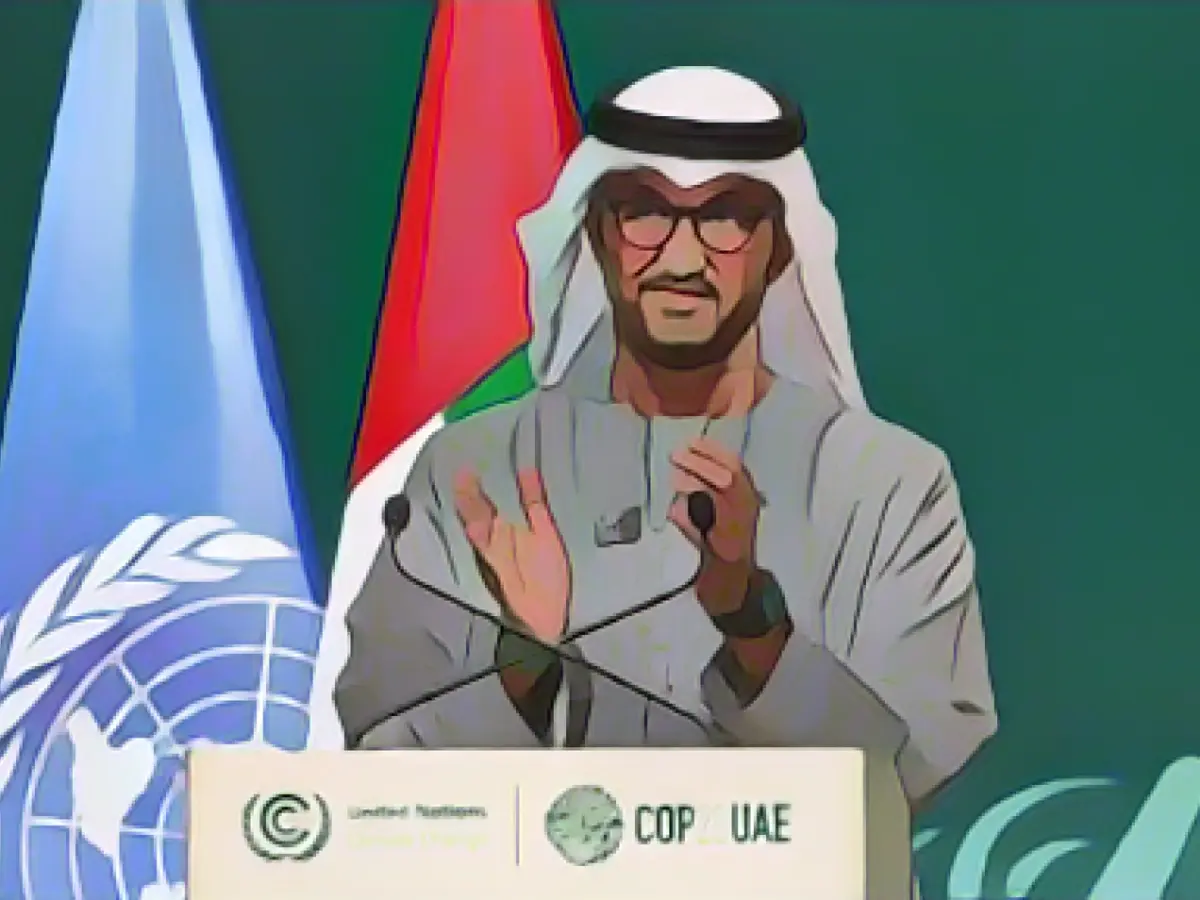Dubai's World Climate Conference Sparks Global Move Away from Fossil Fuels
In a groundbreaking announcement at the World Climate Conference in Dubai, United Arab Emirates, Sultan Ahmed al-Jaber, the conference president, unveiled a joint resolution aimed at transitioning the world away from reliance on fossil fuels, including oil, gas, and coal. The resolution, which was met with applause from delegates, marked the first time that a UN climate conference had addressed the future of all fossil fuels.
Despite efforts from the EU to push for a global phase-out of all fossil fuels, intense resistance from oil-producing nations like Saudi Arabia prevented the inclusion of the word "phase-out" in the resolution. Nevertheless, al-Jaber expressed optimism, stating that the resolution laid the foundation for transformative change.
German officials welcomed the compromise, with Federal Foreign Minister Annalena Baerbock and Economics Minister Robert Habeck praising the agreement as a step towards climate justice. Environment Minister Steffi Lemke viewed it as a good starting point for further action, while Development Minister Svenja Schulze saw it as a signal of unity.
On the other hand, representatives from small island states, which are particularly vulnerable to climate change, expressed concern that the agreement did not go far enough. John Silk, the negotiator for the Marshall Islands, compared the agreement to a leaky canoe that needed to be put into water due to a lack of other options.
Saudi Arabia, representing oil states, expressed gratitude for the compromise, while Brazil and China called on industrialized countries to lead the energy transition.
The resolution calls for a tripling of global renewable energy capacity by 2030 and a doubling of energy efficiency in the same period. However, it also includes references to "transitional energies" such as natural gas and controversial carbon capture and storage technologies, which environmental organizations criticize as a potential backdoor to delaying the energy transition.
UN Climate Change Chief Simon Stiell called for immediate implementation of the Dubai resolution, while UN Secretary-General António Guterres warned that the age of fossil fuels must end. Environmental and development organizations praised the agreement but called for more stringent measures, stressing the need for a massive global phase-out of fossil fuels over the next few years.
This resolution at the World Climate Conference in Dubai represents a historic shift toward renewable energy sources and away from fossil fuels. Countries across the globe are preparing for this transition, with organizations such as the Geneva Environment Network campaigning for a global binding instrument to phase out fossil fuels and promote a just transition to renewable energy.
Relevant Insights
- The conference emphasized the need for a just, orderly, and equitable transition away from fossil fuels in energy systems, accelerating action to reduce greenhouse gas emissions.
- The outcomes of the first Global Stocktake at COP28 called for tripling renewable energy capacity globally and doubling the global average annual rate of energy efficiency improvements by 2030.
- Over 400 organizations have launched a campaign advocating for a Fossil Fuel Non-Proliferation Treaty, which calls for a global binding instrument to phase out fossil fuels and promote a just transition.
- Scientists concluded that at least 90% of coal reserves and 60% of oil and gas reserves must remain in the ground by 2050 to limit temperature increase under 1.5°C above pre-industrial levels.
Impact of Dubai Resolution on Countries and Organizations
- UAE: The UAE's third update of its Nationally Determined Contributions (NDC 3.0) aims to reduce greenhouse gas emissions by 47% by 2035, reflecting its commitment to reducing fossil fuel dependence.
- Colombia: Colombia, as part of the Beyond Oil and Gas Alliance (BOGA), is working to phase out fossil fuels and support a Fossil Fuel Non-Proliferation Treaty.
- Global Movement: Over 400 organizations, including the Geneva Environment Network, are advocating for a Fossil Fuel Non-Proliferation Treaty.
- International Support: The Stockholm+50 conference recognized the need to phase out all fossil fuels and called for financial and technical support for a just transition for fossil fuel-dependent countries.
As the World Climate Conference in Dubai demonstrated, the shift toward renewable energy sources and away from fossil fuels is gaining momentum globally. Countries and organizations worldwide are showing support for this transition and are preparing for the future energy landscape.




